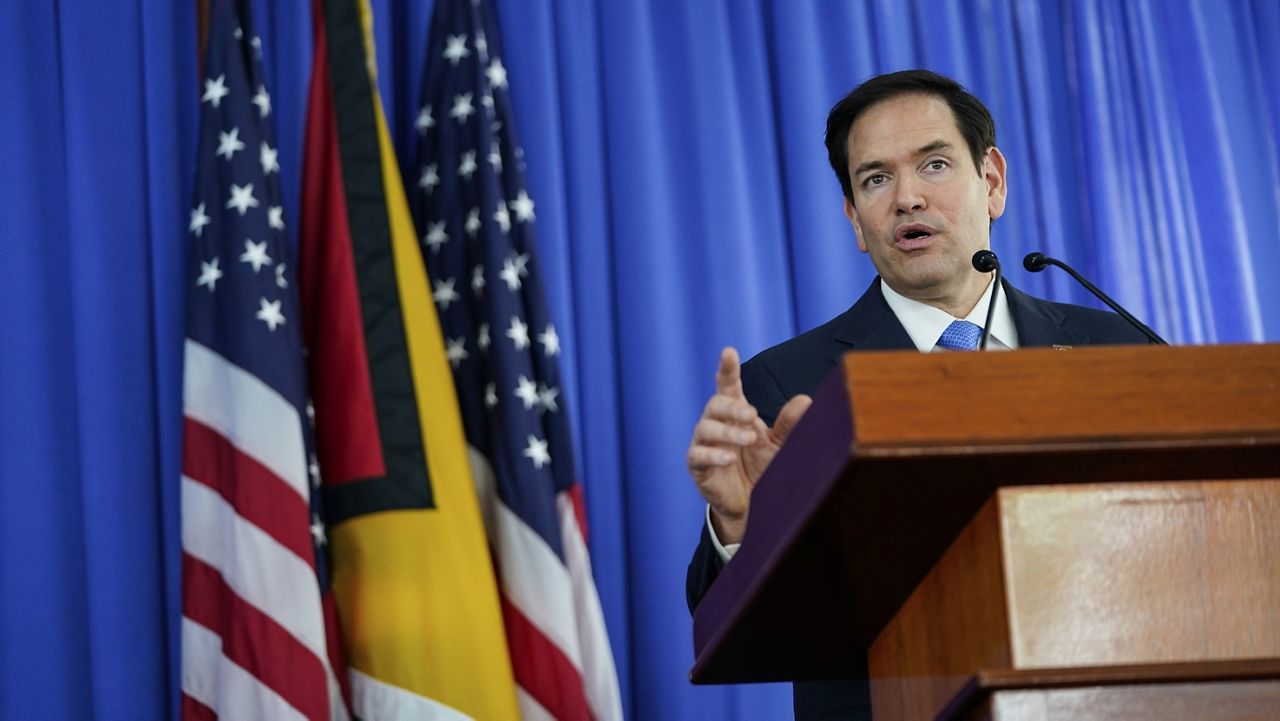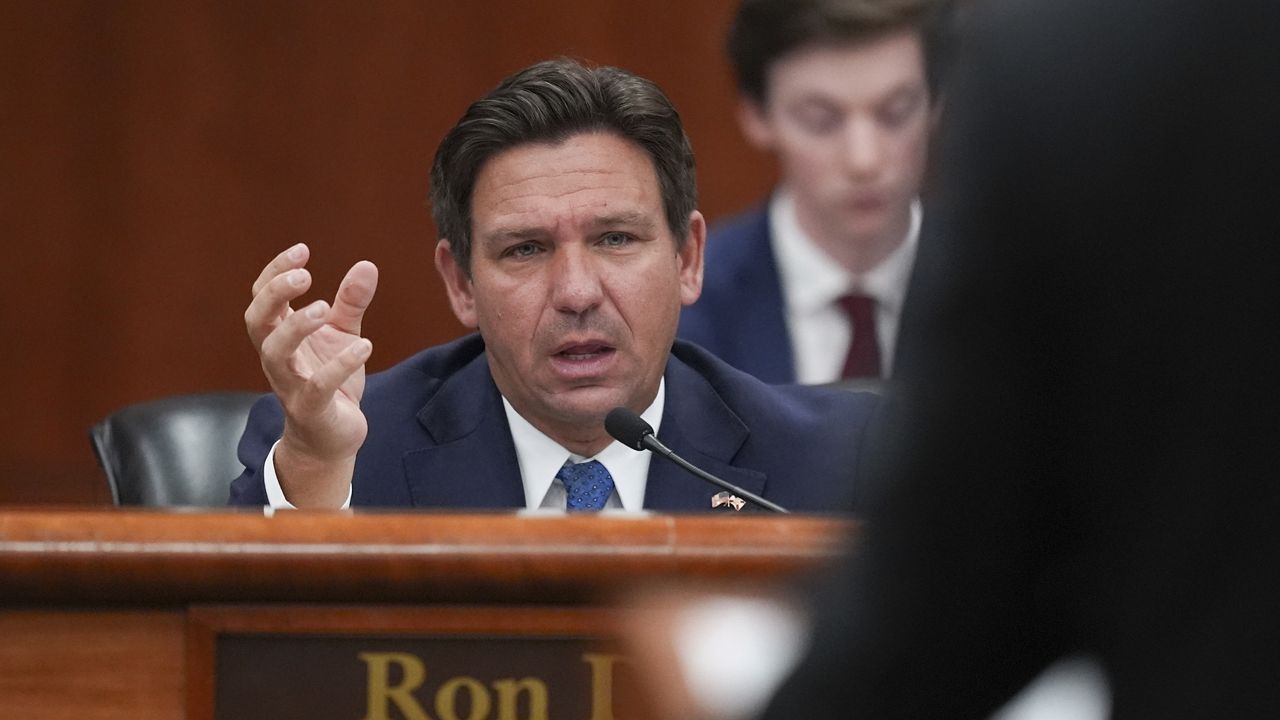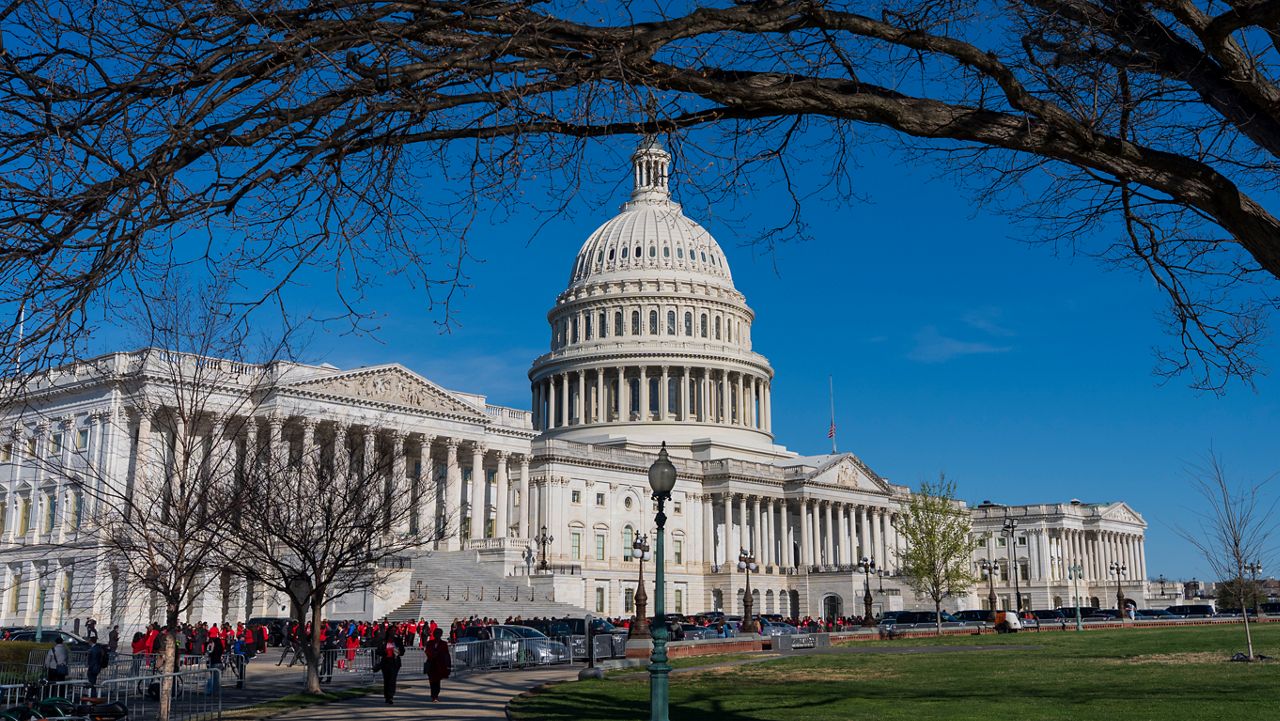Speaker of the House Mike Johnson wins his reelection bid as the new Congress starts the session, and President Joe Biden rejects the sale of U.S. Steel.
Stories in this Episode of Political Connections
- Johnson overcomes GOP opposition to retain House speakership on first vote
- Biden rejects Nippon Steel's proposed deal to acquire U.S. Steel
Johnson overcomes GOP opposition to retain House speakership on first vote
Louisiana Republican Rep. Mike Johnson was elected speaker of the House on Friday on the first ballot after two GOP lawmakers who initially defected changed their votes in his favor.
In the final vote tally, which became official just after 2:30 p.m. Eastern, Johnson earned the votes of 218 of the 219 Republican members. In an expected move, one Republican, Rep. Thomas Massie, R-Ky., voted for someone other than Johnson, throwing his weight behind House Majority Whip Rep. Tom Emmer, R-Minn., instead.
All Democratic members present unified around House Minority Leader Hakeem Jeffries, D-N.Y., to give him 215 votes.
The House remained in limbo for nearly an hour waiting to see if any of the three defectors – a threshold that was enough to send the speaker vote to a second ballot – would flip to give Johnson the win.
Eventually, Republican Reps. Ralph Norman of South Carolina and Keith Self of Texas, who first voted for Reps. Jim Jordan of Ohio and Bryon Donalds of Florida, respectively, returned to change their votes to support Johnson.
During the roll call vote on the House floor, several GOP members who had been noncommittal on backing Johnson in the lead-up to Friday did not vote at all when their names were called, initially keeping the chamber on its toes. After all the names had been read once, they registered their votes for Johnson.
Speaking from the House floor after his victory, Johnson declared that the 119th Congress has the “potential to be one of the most consequential … in the history of this great nation.”
“So long as we work together, we do the right thing and we put America first,” he said.
The speaker cited inflation, cutting the size and scope of the federal government and, first and foremost, the border as top priorities.
"This is a powerful new coalition of our country,” he said. “It's a coalition that insists that we purge the policies of America last and we bury them in the graveyard of history's mistakes because it was a big mistake. To that end, this Congress will renounce the status quo, and we will listen to the voices of the people.”
Despite the delay and initial uncertainty, Johnson’s ultimate success on the first ballot marked a much different scenario than the last time a new Congress convened in January 2023. That year, former Speaker Kevin McCarthy, R-Calif., went through 15 rounds of voting over four days before securing the gavel.
He was ousted nine months later, leading to Johnson’s ascension to the job in October 2023.
Biden rejects Nippon Steel's proposed deal to acquire U.S. Steel
President Joe Biden has rejected the nearly $15 billion proposed deal for Nippon Steel of Japan to purchase Pittsburgh-based U.S. Steel — affirming his vow in March to block the acquisition.
"We need major U.S. companies representing the major share of US steelmaking capacity to keep leading the fight on behalf of America's national interests," Biden said in a Friday morning statement.
His decision comes after the Committee on Foreign Investment in the United States, known as CFIUS, failed to reach consensus on the possible national security risks of the deal last month, and sent a long-awaited report on the merger to Biden who had 15 days to reach a final decision.
The committee, chaired by Treasury Secretary Janet Yellen and made up of other Cabinet members, can recommend that the president block a transaction, and federal law gives the president that power.
A U.S. official familiar with the matter, who spoke on condition of anonymity, told The Associated Press last month that some federal agencies represented on the panel were skeptical that allowing a Japanese company to buy an American-owned steelmaker would create national security risks.
The decision, which comes just weeks before the Democratic president is set to leave office, could potentially damage relations between the U.S. and Japan, which is America's biggest ally in Asia. Japan is also the largest foreign holder of U.S. debt.
Biden previously came out against the deal last March — and was backed by the United Steelworkers, concerned over whether the company would honor existing labor agreements or slash jobs as well as the firm's financial transparency.
"It is important that we maintain strong American steel companies powered by American steel workers," Biden said in a March statement, while he was still seeking reelection to the presidency before dropping out of the race. "U.S. Steel has been an iconic American steel company for more than a century, and it is vital for it to remain an American steel company that is domestically owned and operated."











